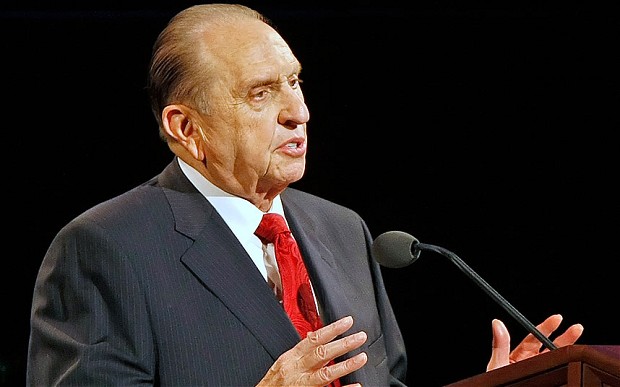
Short answer:
We were always meant to take the words of our prophets to the Lord in prayer and to seek both confirmation and understanding.
Once we receive those, we must find out how to act upon the knowledge we have received and confirmed.
President Boyd K. Packer in the April 1983 conference taught us about this:
“Latter-day Saints . . . are obedient because they know certain spiritual truths and have decided, as an expression of their own individual agency, to obey the commandments of God.”
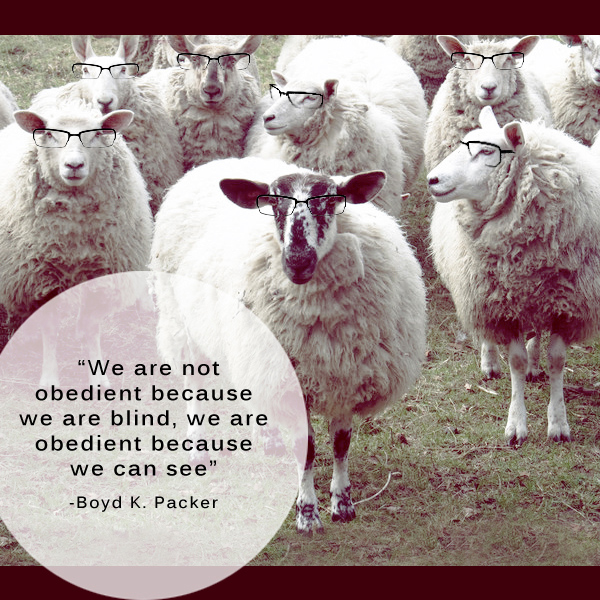
Long Answer:
By John Lynch and Rene Krywul of FairMormon Answers.
Two Principles for Following the Prophet
Some struggle with the doctrine of fallibility and the responsibility of members to learn for themselves. Others struggle with how to faithfully manage their personal relationship with the Church when they disagree with its public positions. To address these struggles, two simultaneous principles need to be managed.
First, there is a question of sustaining our leaders. This principle is at the heart of the idea that we follow the prophet.
Second we should learn and know for ourselves that the course we are following is the correct course for our lives. Among the very first things the missionaries teach the members is, that they need to pray and get a personal revelation.
The conflict arises when there is a distinction between what we feel is right and what the prophet has asked us to do.
What Does it Mean to Sustain the Prophet?

Sustaining the prophet contains two important elements.
1) Holder of Priesthood Keys. We should help the prophet in their role as the individual with the priesthood keys to govern the covenant process and ensure that the priesthood is properly used.
In their role controlling the keys of priesthood power, we need have little worry that they will lead the Church astray. The organization of the apostolic office and the the first presidency helps ensure that seasoned, tested, and proven men of faithfulness will be involved in the oversight of the use of the keys.
These leaders help ensure that the saving ordinances are performed as outlined in scripture according to the qualifications prescribed. They help ensure that, as a covenant people, the covenant process and power is preserved.
2) Teacher of Righteousness. We support them in their role as a teacher of righteousness.
In their role as teachers of righteousness, our leaders promote those teachings designed to lead us back to Heavenly Father. They rely on scripture, teachings of prior prophets, their own reasoning, and their own experience.
They seek inspiration from God to fulfill this responsibility, and they receive revelation from time to time that clarifies, expounds upon, or even changes prior teachings.
The inspiration they receive is filtered through their own reasoning and experience. As such, they can advance us in our ability to better live the will of our Father in Heaven, even while not being perfect in their own efforts to do so.
At times, leaders may rely too much on their own experience or on the teachings of others. This may have been the case with the now repudiated and misguided efforts to justify the priesthood ban.
Do I Need to Agree with Everything the Prophet and Apostles Say to Sustain Them?

Some suggest that Latter-day Saints should “listen to every word the president of the church says, and then stop thinking.” This is false doctrine. This is a perversion of following the prophet.
Joseph Smith taught, “A prophet is only a prophet when he is acting as such.” According to the Doctrine and Covenants this is when “they shall speak as they are moved upon by the Holy Ghost.”
But if the prophet is not moved upon by the Holy Ghost, their words are theirs alone, and they have a right to err. Joseph Smith said so, Brigham Young said so, John Taylor said so, Bruce R. McConkie said so, and so did numerous others.
God’s plan is to make us like Him. This goal can absolutely not be accomplished without each and every one of us being led personally by God.
The prophets show us (as in Alma 13), how to look to Christ. We see the prophets, and by doing what they do–following them–we learn to look up to Christ, become prophets of our own, and then go on to become like God.
For instance, Brigham Young said:
” How do we know that the leaders of this people teach the truth? By revelation. What proved this work true to you? Was it not the spirit of revelation that rested upon you? . . . Let all persons be fervent in prayer, until they know the things of God for themselves and become certain that they are walking in the path that leads to everlasting life.”
The idea of following the words of the prophet, instead of following the example of the prophets and becoming a prophet oneself, flies in the face of more than 180 years of teachings of prophets.
What Do I Do When I Disagree With the Prophet or Apostles?
It is precisely because our leaders may err that we need to be prophets in our own right. This ensures that we are both able to properly follow as well as sustain them while we seek to do right.
So, what do we do when a teaching of a leader does not coincide with our reasoning, experience, or even personal revelation?
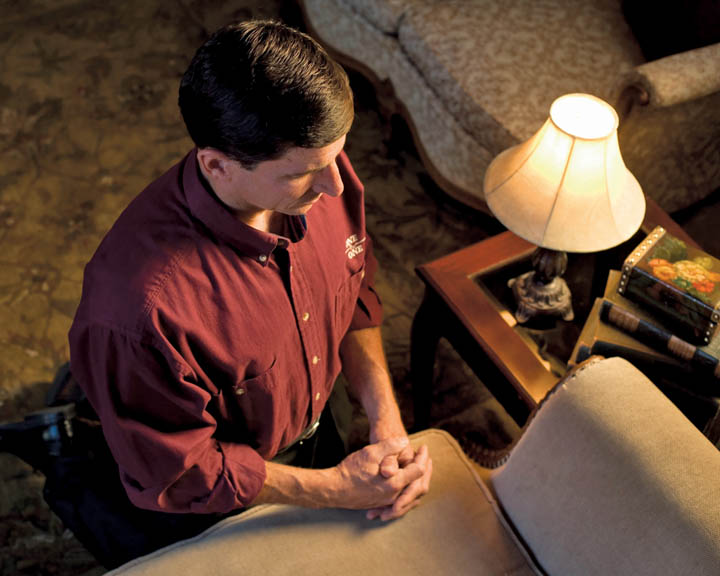
1) Be humble. I suggest that a third principle, humility, demands that before we question the leader, we question ourselves. Being a good follower is more important to our exaltation than is being a good leader.
Obedience is the first principle of heaven. By obeying eternal principles, we become empowered to become and do what God is and does. Humility enables us to remove our own prejudice from the equation, and thereby become better followers.
So our first reaction should be to question ourselves before we question the prophet. As with the apostles at the last supper who learned that one of them would betray the Savior, we should ask “Lord, is it I?”
We should do as Nephi and seek to gain the same inspiration as the prophet to eliminate the conflict we are experiencing. If we gain a confirmation that corrects an error within ourselves, then the issue is resolved.
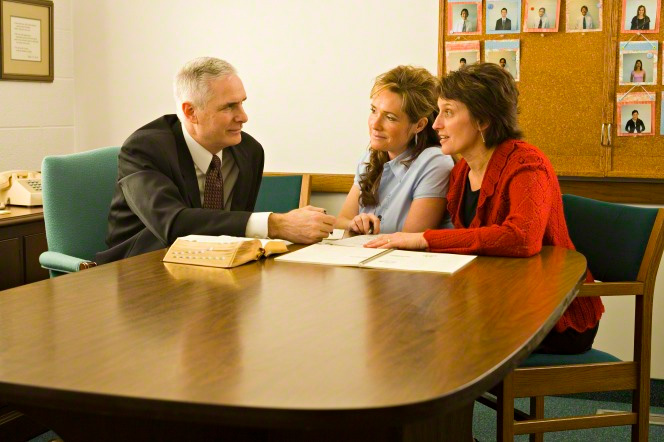
2) Prioritize. If we do not resolve the issue in this way, then we need to first consider the significance of the issue and determine if there is even a need to confront the issue at all. Some issues are of greater import than others.
If the issue does not deal with eternal consequence, even if it impacts the temporary happiness of ourselves or others, then we must decide if we have a responsibility to say or do anything.
In many instances, the issue is likely not of such import to justify any action on our part, and we simply sustain our leaders, and our ability to obey, by following the decision of the leader.
These types of issues often occur on a local level. It could involve callings, policies, meeting times, ward boundaries, or even the reasons for certain practices.
In these cases, we need to weigh which is more important: trying to correct the perceived error, or being a good follower. Consider also how your decision could impact the confidence others have in the leader, and the effectiveness of the leader. In many, if not most cases, the best course is to simply follow.
In some cases, the stakes may be greater. In these instances, how we proceed can determine not only if we are sustaining our leaders, but if we are actively working against them!
So, let’s assume the issue is a significant issue, and our soul searching has left us with a conscience in disagreement with a leader. What do we do?

3) Pray. If the issue is not related to the proper exercise of keys, we begin by petitioning the Lord, pleading that He inspire the leader to correct the issue, while maintaining a willingness to accept the will of the Lord if the issue is not corrected as we would hope. In this process, we must maintain our humility.
If we are privately asked by a leader about the issue, we should feel free to give our best counsel on the matter. But we must be willing to follow whether or not our counsel is followed.
If the issue is one that ultimately is left to the discretion of the individual, then we are free to act as we think best. Such is the case with civic positions the Church may take, such as the ERA, gay marriage, immigration, or legalization of drugs, to name a few.
If the issue has to do with the exercise of keys, our only recourse is fervent prayer and private petitioning of the leaders themselves.
In the end, it doesn’t matter if we agree or disagree with the prophets on any given issue. It is not our duty to agree or disagree with the prophets.
It is our duty to study the issue out in our minds, then get down on our knees and ask the Lord in prayer. With fasting. Until either we receive an answer, or until we give up. If we give up, we can then assume that the Lord wants us to be more humble before He answers our questions.
We can receive several different answers. The Lord could agree with what we concluded by studying, or he could rejects it. He could also tell us that our study has been incomplete and that we need to do more.
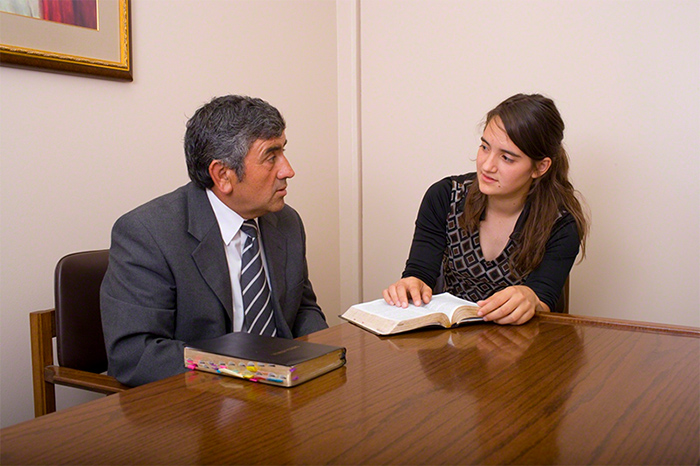
4) Speak. What should be avoided, except in the most extreme of circumstances, is the public opposition of the Church such as we have seen with occasional individuals who publicly lose their membership.
These instances of public pressure turn a revelatory process into a political one by seeking to force a leader to bow to external pressure rather than follow an internal light.
This is contrary to the order of heaven, where majority rule does not have claim but where the first rule of heaven necessitates that rule from above governs.
So even if our personal conscience disagrees, we are duty bound to make our influence privately felt. In so doing, we also preserve that all important principle of humility so that we can indeed be governed from above.
Brigham Young said the following:
“It is not the place for any person to correct any person who is superior to them, but ask the Father in the name of Jesus to bind him up from speaking false principles. I have known many times I have preached wrong.”
So, if you disagree with the Brethren on any given topic, that is not a problem. But speaking up about it is.
The founder of Ordain Women was taught by her stake president:
“It is important that you understand that you are not required to change your thinking or the questions you may have in your own mind regarding the ordination of women, but you need to make it a private matter and work through this issue with your bishop or branch president.”
If, by some chance, the issue is of such grave import that private communication on the matter is impractical, then we have a very difficult decision to make. Public statements in opposition to the Church must only be reserved for that rare instance where God himself commands us to do so.
It’s difficult to imagine a circumstance where this might occur, as the structure of a first presidency and quorum of apostles will preclude it. Assuming that the Lord told you that you are right in an assumption that goes against what a church leader says, then be aware of the standards in Doctrine and Covenants Section 28.
Only the President of the Church receives revelation for the Church as a whole. If he receives revelation, this still does not mean that this is doctrine of the Church!
The revelation must pass the test of “common consent”, which means that the First Presidency, the Quorum of the Twelve and the Quorum of the Seventy need to be agreed on this being revelation and doctrine.
Then the general conference votes on the issue, and if positive, the new revelation will be added to the standard works and become official and binding doctrine of the Church.The Mormon Newsroom recently clarified:
“Not every statement made by a Church leader, past or present, necessarily constitutes doctrine. . . . Individual members are encouraged to independently strive to receive their own spiritual confirmation of the truthfulness of Church doctrine.”
Doctrine and Covenants section 50 teaches the same principle:
“He that receiveth the word by the Spirit of truth receiveth it as it is preached by the Spirit of truth?He that preacheth and he that receiveth, understand one another, and both are edified and rejoice together.”
If by some chance the First Presidency and Quorum of the Twelve all fall astray and begin to change the covenants, or teach us to worship false gods, or behave in direct opposition to moral rectitude (think the priests of King Noah), then and only then might it be proper for us to speak up, provided that God dictates that we do so.
On this subject Brigham Young adds:
“Should you receive a vision or revelation from the Almighty . . . but which you are not to reveal on account of your not being the proper person . . . you should . . . make it as secret as the grave. The Lord has no confidence in those who reveal secrets, for he cannot safely reveal himself to such persons.”
When we must speak up, we can use the reaction of Nephi as our example, when Lehi was complaining about his broken bow. Nephi did not chastise his father, but rather sustained him as the leader by asking him where he should go to find meat.
Nephi reinforced Lehi’s role not by opposing him but by submitting to him. In virtually all circumstances, we would be wise to do the same.

How Do I Disagree Without Apostatizing?
Many years ago, Elder George Q. Cannon taught, “While a man might honestly differ in opinion from the authorities . . . he must be exceedingly careful how he acts in relation to such differences.”
If you have feelings of agreement on issues with some who publicly oppose the Church, ask yourself if you actively join with them.
Do you seek to further their cause and diminish the influence of our leaders? If you do, then you may indeed be in a perilous position. If not, and if you simply live your conscience, then you should feel confident that you are on safer ground.
Apostasy is active, open opposition to the Church where we seek to undermine it or our leaders. Private disagreement, when reserved to private influence and prayerful pleadings, on the other hand, is a form of sustaining our leaders and can be an act of loyalty.
Diversity of opinion and thought is healthy for a church that believes in ongoing revelation. But that diversity must be accommodated within the framework the Lord has established.
Sometimes, we are quick to rely on our own ideas, especially when cultural influences seem so convincing. We forget that prophets are called to “see afar off” those things which can only be revealed by revelation to one in authority.
The followers do not lead. The leaders lead. They are the ones who say “this is the direction we should go” when the world around them points to another way.
They are in place not to ratify the decision of the crowd, but to oppose it when the crowd would go astray. The job of leaders is to correct us, not be corrected by us.
If they ultimately fail, they will answer for how they function in their role as leaders, just as we will answer for how we function in our roles as followers.
We should have no problem following an imperfect leader provided we are the best followers we can be. In the end, we can trust that the Lord will make right all that we as humans have made wrong, if we have acted as best we could with the principles given.
Even Adam and Eve, given seemingly opposing principles to follow, made the best choices they could, and God provided a Savior to make up the difference. We can trust that He will do the same with us.
Read more at the following links:
LDS.org: The Clarion Call of Prophets
Harold B. Lee: October Conference 1970
James E. Faust “Continuous Revelation” October Conference 1989
FairMormon: When the Prophet Speaks, Is the Thinking Done?
FairMormon: The Fallibility of Mormon Prophets
FairMormon: Biblical Keys for Discerning True and False Prophets





